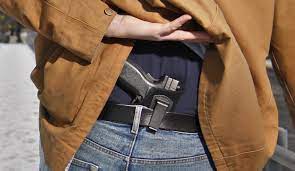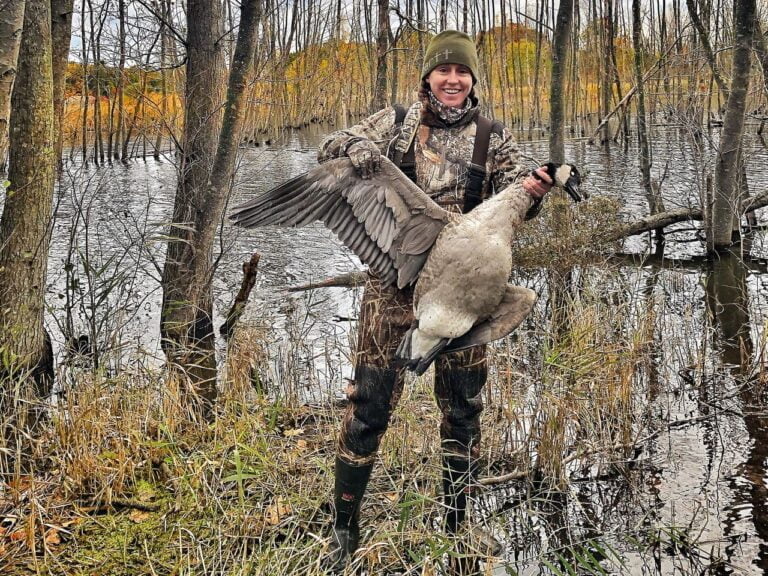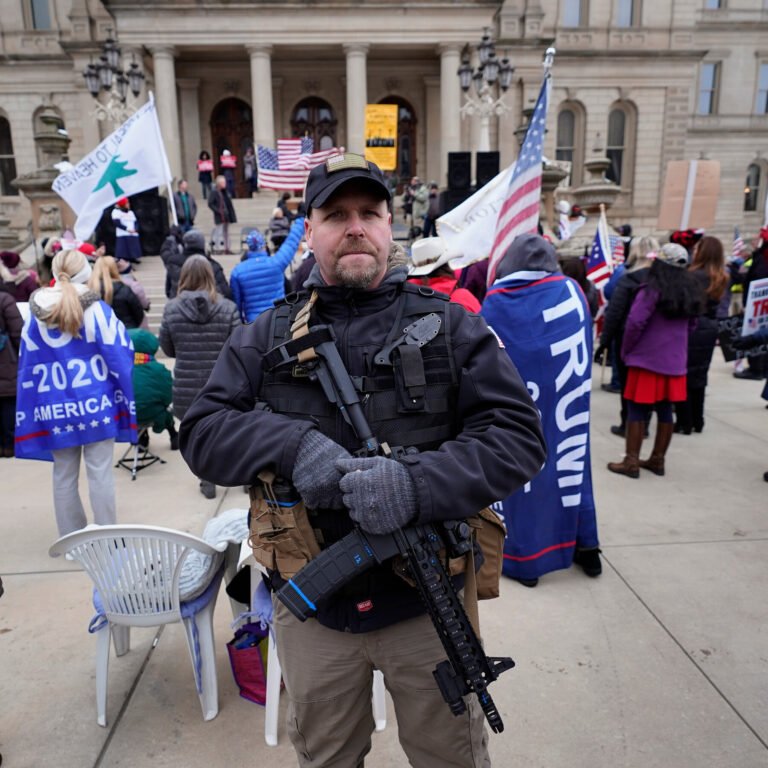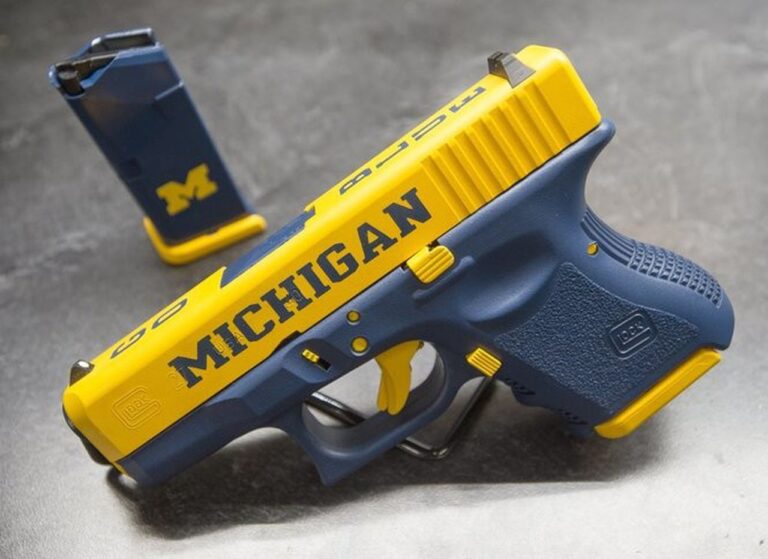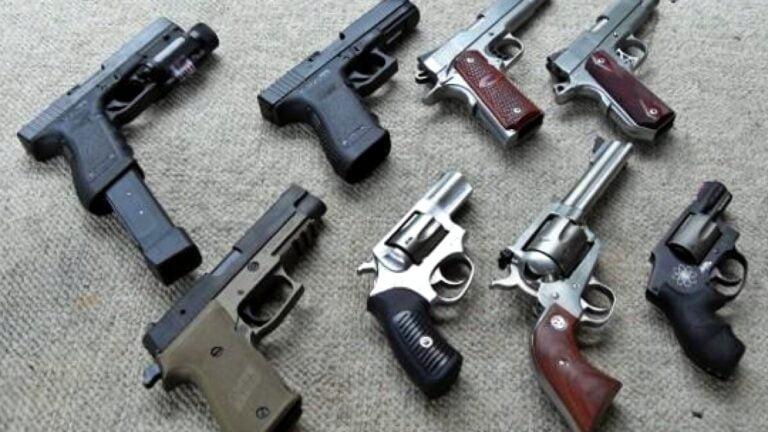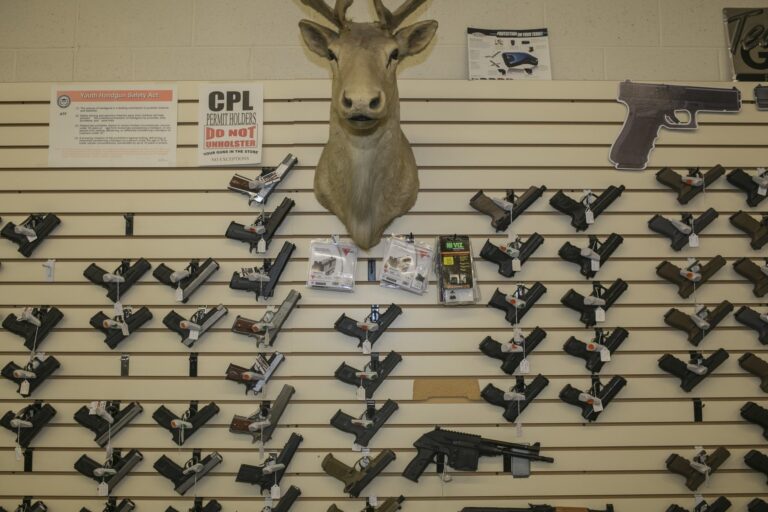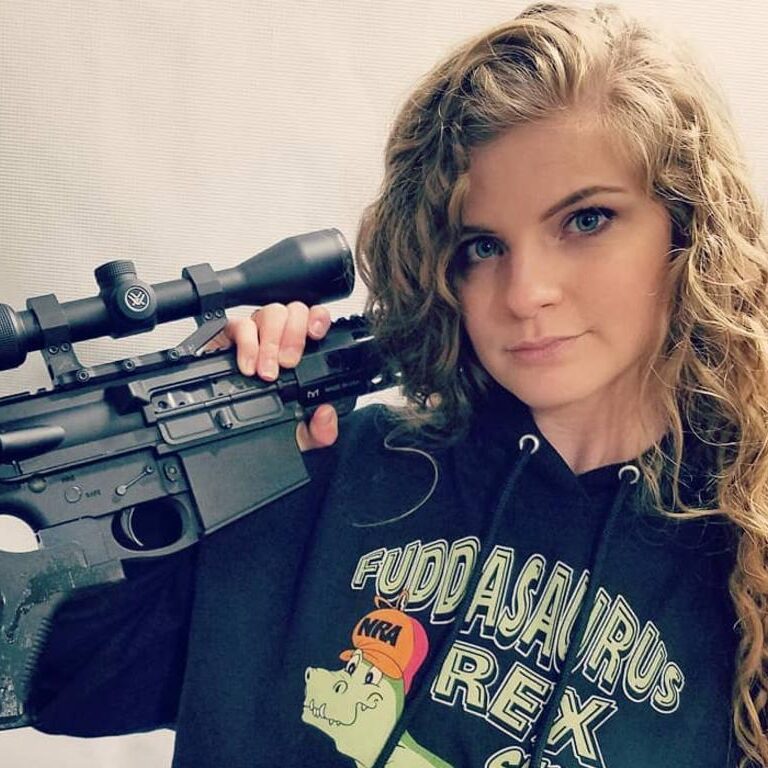Michigan Concealed Carry Weapon (CCW): Gun Laws, Application, Requirements & Online Training
Michigan issues CCW permits at the county level, and this is done by the clerk in charge.
Michigan follows a shall-issue policy, meaning that if you meet all the state’s concealed carry permit requirements, your application will be granted.
Michigan Gun Laws
To carry a concealed weapon in Michigan, you need the state’s Concealed Pistol License (CPL), which serves as the CCW permit. Michigan only issues CCW permits to both residents and non-residents who already possess a license from their state of residence.
However, non-residents in Michigan are not allowed to purchase handguns; they can only purchase long guns after meeting all other requirements, including Gun regulations.
Michigan CCW Reciprocity
Michigan honors CCW permits from every other state in the country, provided you meet the age requirement to possess a firearm. Similarly, other states also recognize Michigan’s CCW permits. There are specific rules for reciprocity:
- States that accept Michigan CCW permits: This includes all states in America, the District of Columbia, and Puerto Rico. However, you must be at least twenty-one years old for Michigan to honor your state’s CCW permit.
- States that honor Michigan’s CCW permits: There are twenty-one states that honor any type of CCW permit issued by Michigan.
- States with restricted reciprocity: Four states will only accept Michigan’s “residents only” CCW permits and not other types of permits.
- States with permitless carry: Certain states allow concealed carry without a permit, but age requirements and other restrictions may apply.
Regardless of reciprocity, it’s crucial to familiarize yourself with the specific gun laws in each state you visit.
Michigan Location Restrictions
Even with a Michigan CCW permit, you cannot conceal carry in certain places, including:
- Schools and public elementary schools, preteen schools, and vehicles used for student transportation (except for school parents or guardians dropping off their wards).
- Buildings or properties used for children’s care or daycare centers.
- Halls of residence in colleges, technical institutions, or universities.
- Stadiums or areas used for professional sporting activities.
- Bars where the primary income source is alcohol sales.
- Places of worship such as churches, mosques, temples, or synagogues (except with the permission of the person in charge).
- Facilities with more than two thousand five hundred holding capacity.
- Hospitals or health institutions.
- Michigan State University or Wayne University (except for special cases with a Michigan CCW permit).
- Restricted airport areas.
- Game houses or casinos.
- Courthouses or offices within a courtyard are used by judges and other judicial workers (except with written permission from the judge).
- Areas where federal laws prohibit the use of firearms.
Places Where You Can Conceal Carry in Michigan
Contrary to popular belief, Michigan gun laws do allow concealed carry in certain places:
- Restaurants and bar ventures (except under the influence of alcohol and in bars).
- Personal vehicles with a Michigan CCW permit.
- Road areas and rest areas.
- National and state parks, forests, and wildlife management areas.
Concealed Carry for Law Enforcement Officers
Federal laws permit law enforcement officers, including active, retired, and out-of-service officers, to conceal carry. Retired law enforcement officers in Michigan can conceal carry after completing law enforcement officers’ safety act programs in the state.
Buying and Selling of Firearms in Michigan
Michigan has strict gun laws governing sales, purchases, transfers, and transportation of firearms. To deal with guns in the state, you must be familiar with these laws.
Purchasing Permits
Only residents of Michigan can purchase firearms in the state. Holders of a Michigan CCW permit can buy guns in the state, but they must complete a gun sales record submitted to the state police department.
Background Checks for Buying Firearms
A background check is required before obtaining a Michigan CCW permit, eliminating the need for an additional check to purchase a firearm in the state. Buyers without a CCW permit need a firearm purchase license, which requires a criminal background check.
Firearm Registration in Michigan
Certain firearms in Michigan require registration with the police department before use. However, guns used by law enforcement officers and non-residents with a CCW permit from another state do not require registration.
Waiting Period for Purchasing Firearms in Michigan
Michigan does not have a waiting period for firearm purchases. The sale is complete as soon as the firearm is paid for.
Age Requirements for Firearms in Michigan
You must be at least eighteen years old to possess or transport a firearm in Michigan. However, to buy a firearm, you must be at least twenty-one years old. Other age laws include restrictions on underage possession, except for specific circumstances.
Possession of Firearms in Private Properties
You do not need a permit to possess a firearm in your residence, place of business, or any property you own.
The Process to Purchase Handguns in Michigan
If you have a Michigan CCW permit, you do not need a firearm license to purchase a gun in the state. Non-residents must obtain a purchase permit before buying a firearm.
Castle Doctrine in Michigan
Michigan has a Castle Doctrine law that allows individuals to stand their ground without a duty to retreat when unlawfully attacked in their homes. This law grants immunity from civil liability when using excessive force as a means of self-defense in these situations.
Requirements for Michigan CCW Permits
Before applying for a Michigan CCW permit, several requirements must be met, including age, completion of a concealed carry class, residency, identification, clean criminal record, and other federal requirements.
How to Apply for a CCW Permit in Michigan
After meeting all the requirements, you can apply for a CCW permit by completing a firearm training course, downloading the application, submitting the necessary documents, and taking fingerprints.
Conclusion
Michigan’s concealed carry laws and requirements are designed to ensure responsible gun ownership and enhance public safety. Before attempting to carry a concealed weapon in Michigan or any other state, it is essential to understand and abide by the specific laws and regulations in each jurisdiction. Responsible and informed gun ownership is the key to maintaining a safer environment for everyone.
FAQs;
Q1. Can I carry a concealed weapon in Michigan without a CCW permit?
No, carrying a concealed weapon in Michigan requires a Concealed Pistol License (CPL), which serves as the CCW permit. Without a valid CPL, carrying a concealed weapon is illegal.
Q2. How long is a Michigan CCW permit valid?
A Michigan CCW permit is typically valid for approximately five years. After the expiration, you will need to renew it to continue carrying a concealed weapon legally.
Q3. What are the age requirements for obtaining a CCW permit in Michigan?
To be eligible for a Michigan CCW permit, you must be at least twenty-one years old.
Q4. Can non-residents of Michigan obtain a CCW permit in the state?
Yes, non-residents can obtain a CCW permit in Michigan under certain conditions. They must meet specific requirements and obtain a CCW permit from their state of residence before applying to Michigan.
Q5. Are there any location restrictions for carrying concealed weapons in Michigan?
Yes, there are location restrictions in Michigan, prohibiting concealed carry in places like schools, daycare centers, stadiums, and places of worship. You must adhere to these restrictions to avoid legal consequences.
